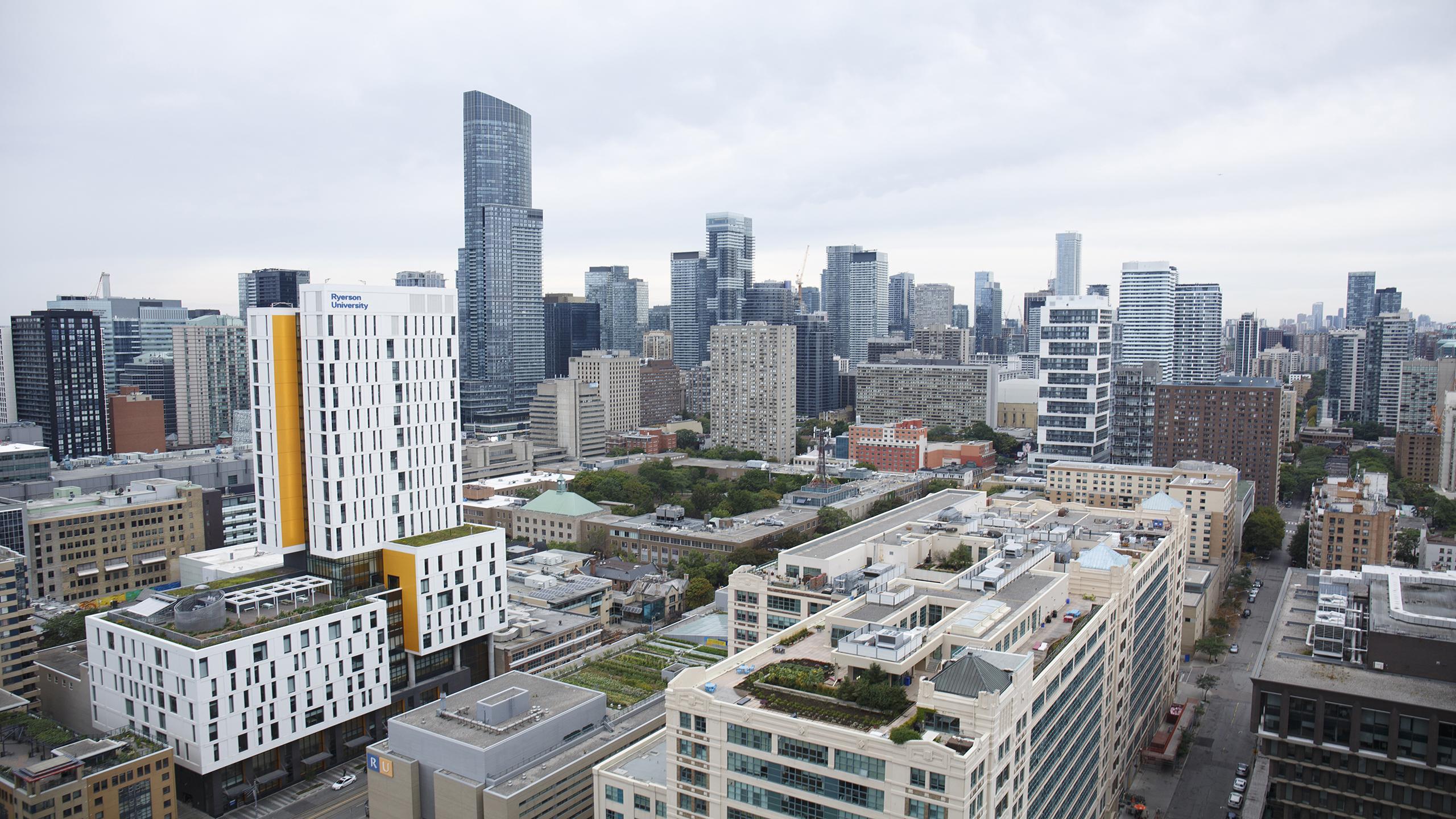By Samira Balsara
Toronto’s average monthly rent prices have skyrocketed as people migrate to the city post-pandemic, making for a hot housing market that Toronto Metropolitan University (TMU) students are struggling to compete in.
A Rental.ca report revealed that average monthly rent prices have increased 24 per cent since July 2021 for all property types, from $2,168 to $2,691.
“What you’re seeing happening at the moment is this wave of folks that are now moving back into the city that we see in the return to the office,” said Nemoy Lewis, an assistant professor at the TMU School of Urban and Regional Planning. “Students are having to compete with the interests of those folks, but they’re also competing with international students who are also coming back to in person classes…and as a result, students are facing stiff competition in order to secure housing.”
The latest increase in rent prices has brought the cost of living in Toronto to a two-year high.
According to Zumper’s July 2022 Canadian Rent Report, the median rent for a one-bedroom reached $2,100 this summer, the highest it’s been since July 2020. These prices have made Toronto the second-most expensive city in Canada, just behind Vancouver.
Defne Yildirim, an international student in her fourth-year of the economics program, said she had a tough time looking for a place to live after living in Turkey for the past two years.
Before she even got back to Toronto, Yildirim was scammed by a seller while looking for apartments on Facebook Marketplace.
“I really wanted to believe that I was getting a home”
“I started looking for a place at the end of May because I knew that the Canadian way of housing, especially in Toronto, wasn’t really easy to find,” she said. “So I really prepared myself for it.”
She said she would go on Facebook groups to find housing, but there were so many options and she was overwhelmed. Because Yildirim was still living in Turkey while house hunting, she wasn’t able to verify the places she was looking at. She ended up falling for a scam and paying a fee to view an apartment that was never truly for rent, costing her money.
“I really wanted to believe that I was getting a home.”
After almost four months of searching, Yildirim ended up having to look outside the city, where prices were a little more affordable, finally securing a place about 30 minutes from TMU.
While it worked out for Yildirim and her roommates, high prices aren’t the only struggles students are facing when it comes to house hunting. Students are also having trouble with landlords.
“It’s a result-oriented business, especially for the institutional landlord. They have a responsibility to their investors and to their shareholders,” Lewis said.
He added that their motivation is profit-based and focused on maximizing their return on investment into particular properties. “And one way in doing so is to create essentially a product, so a rental unit, that can command the highest amount of rent possible.”
Lewis explained that institutional landlords, such as private equity firms, asset management, and insurance companies, will charge whatever price will match the amount they’ve promised to their investors.
“Typically, students don’t meet this particular threshold because of the fact that students aren’t making a whole lot of money,” he said.
Alexis Lorette, a first year performance dance student who moved from Montreal ahead of the semester, had trouble finding a landlord who would rent to her.
“It was really hard to find apartments that actually took students as well,” she said. “They took one look at me and they’re like ‘No we don’t trust you with rent.’”
She added that the prices were incredibly high and she is currently paying about $1,800 a month for a studio apartment in the heart of the city. Lorette lives with her boyfriend and has support from her parents to help pay the high rent fees.
“We were lucky in that regard, but for a student to pay that on their own, it’s absolutely ridiculous, not feasible,” she said.
Lorette said she saw several apartments at higher prices than she’s paying right now that barely included amenities.
Rhiannon Corrigan, a first-year student also studying performance dance, had similar struggles while moving to the city.
Corrigan is currently living on her own, paying $2,150 for a one bedroom apartment. Luckily, all her utilities are included in that price, but she said it’s “rare” to even find that.
Corrigan is also receiving some support from her parents with tuition and rent.
“Obviously I’m coming from a very privileged standpoint and I think for someone who maybe isn’t as privileged, it would be very difficult to find housing that you can afford and feel safe in,” she said.
Lewis noted that students coming from families with lesser income are the ones struggling the most in the midst of the unfeasible Toronto prices.
When it comes to finding solutions for students, Lewis suggested for schools to try partnering with non-profit organizations to construct housing, rather than private developers.
He added that the government could enforce certain policy changes that would benefit students more.
For example, the Ontario’s Residential Tenancies Act reads that new buildings, additions to existing buildings and most new basement apartments that were occupied for the first time for residential purposes after Nov. 15, 2018, are exempt from rent control.
A CTV News article from February of this year reported that a couple living in a newer Toronto building were surprised when they found out their rent was increasing by 25 per cent.
Lewis said policies like this don’t guarantee a level of affordability for students year over year and changing them could enhance the level of affordability for students and the broader public.
Above all, Lewis said that what Canadians, and especially students, need is affordable housing, “where students are not having to make difficult decisions of ‘do I attend my classes or do I work that extra five, six hours shift in order to pay my rent?’”
“We have to think about how those particular decisions students are being forced to make are then impacting their scholastic performances within school,” he said.













Josh Graham
It’s great to see coverage of this issue – affordable student housing is extremely important.
That being said, it’s a little disheartening to see no mention of TMU’s ORIGINAL student residence option (Before Pitman Hall, ILLC or Daphne Coxwell Centre) there was Neill-Wycik; a student housing co-operative created by students from Ryerson Polytechnic Institute, and built in the late 1960’s. Neill-Wycik was the first high rise student dwelling for Ryerson students, and to this day our membership is comprised of about 80% students from TMU. We’re literally right across the street from campus, and our housing rates are on average $580 per month – so pretty close to 1/3 of market rate. All of this is possible because Neill-Wycik is a co-operative, which means that there is no Landlord trying to exploit students for profit. It was started by students for students, and this is why our rates can be as low as they are.
It would be great to see more coverage of issues of affordable housing in your publication, but I think it’s important to spread awareness of alternative housing models as a solution to the problem. Neill-Wycik can be seen in the photo for this article (we’re the tall red brick building in the middle-right of the photo, just behind Pitman Hall). The issue of affordability is critical, but let’s also mention that there is a solution, and it’s right at your doorstep. BUILD MORE CO-OP HOUSING, and pressure the University Administration to pursue that option rather than partnering with private for profit developers who are going to charge students an arm and a leg.